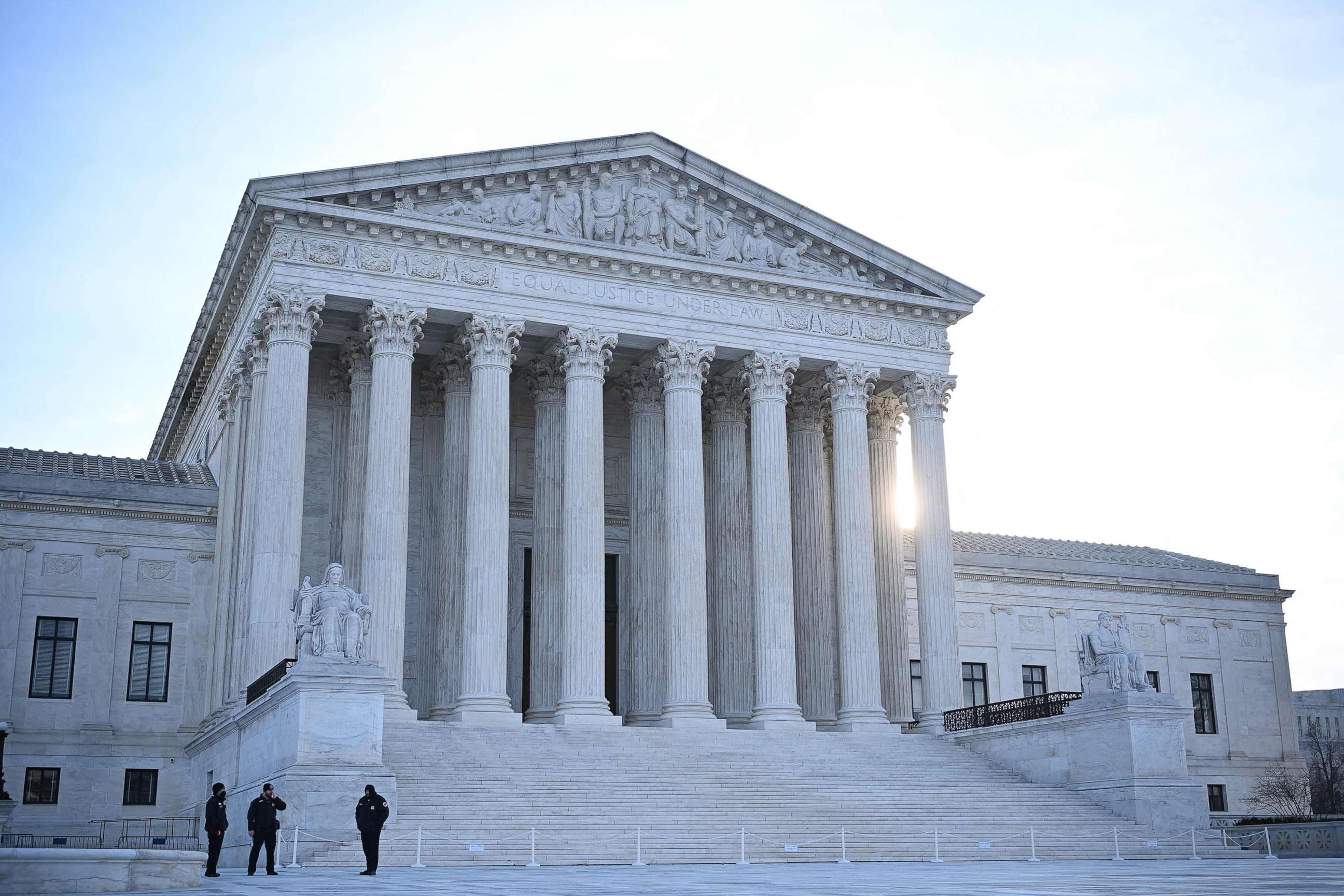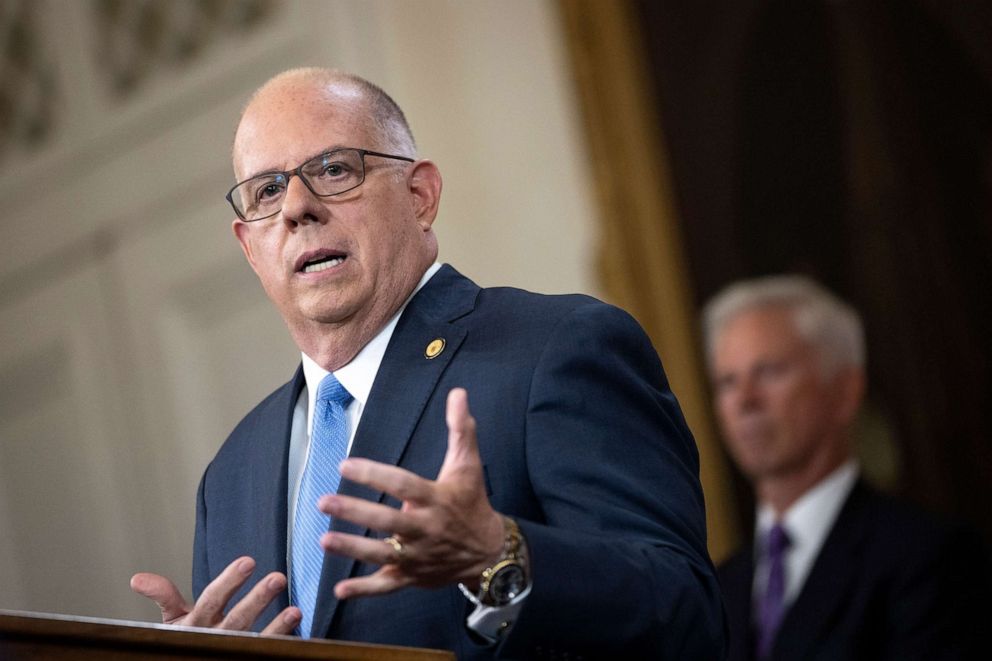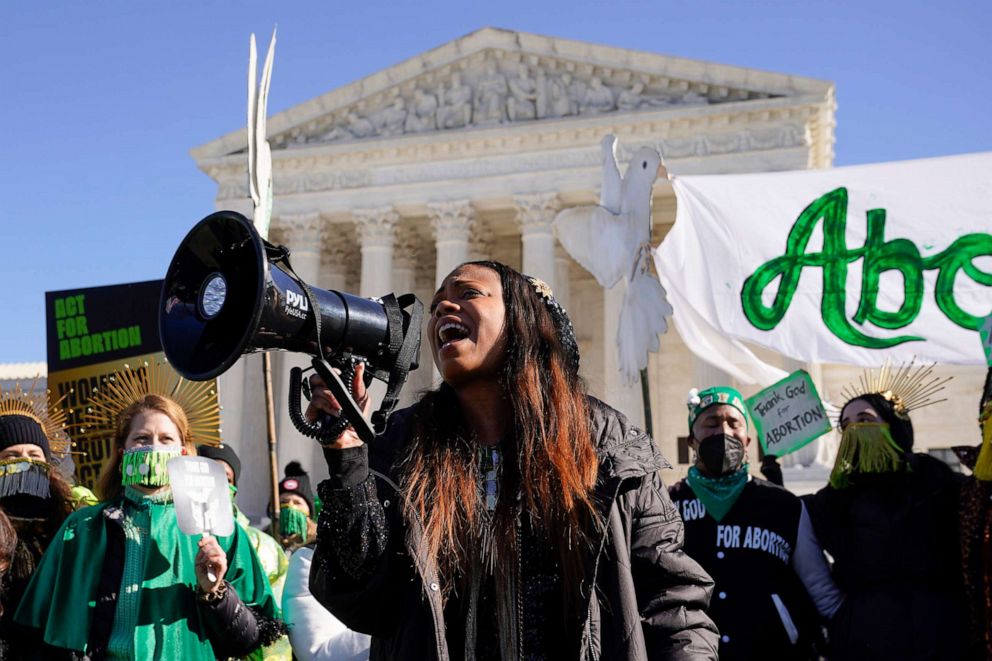Partisan plays shape redistricting landscape: The Note
It's a polarized and messy political process.
The TAKE with Rick Klein
This year's redistricting battles have included their share of surprises -- not least the emerging takeaway that has Democrats looking a good measure better than expected with the latest congressional maps.
What hasn't been surprising is how state legislatures -- including those controlled by both parties -- have pressed their partisan advantages almost wherever and however they can in carving up new House seats. Federal courts, meanwhile, appear more ready than in previous cycles to let those judgments stand.

While roughly a dozen states still have work to do, the likeliest end result will be redder GOP districts, bluer safe Democratic seats and fewer competitive races overall. FiveThirtyEight's redistricting tracker tallies eight fewer highly competitive seats and counting, with Democrats on track to net approximately three flipped seats based on newly drawn districts.
And though the Supreme Court's 5-4 decision this week didn't directly rule on the merits of Alabama's new map, inaction can also be action. Despite a lower federal court ruling that the GOP-passed plan unlawfully diluted the power of Black voters, the new districts -- expected to keep the 6-1 Republican-to-Democrat edge in the state's delegation -- will be in force through at least 2022.
That ruling is being taken as a signal for where the Supreme Court is likely to come down on similar challenges and a possible hint of where it will be when it takes up the issue of affirmative action in college admissions later this year.
Overall, though, it's the polarized and quite messy political process in states that is creating maps that will last for the next decade. Through inaction in Congress and less action than in the past from the courts, what's happening in states -- both blue and red -- is likely to stand.
The RUNDOWN with Averi Harper
Maryland's Republican Gov. Larry Hogan put the possibility of a 2022 Senate bid to rest in a press conference Tuesday.
"A number of people have said that they thought I could make a difference in the Senate and be a voice of common sense and moderation," said Hogan. "I was certainly humbled by that and it gave me and my family reason to consider it. But I have repeatedly said I don't aspire to be a United States senator and that fact has not changed."

The announcement comes after a concerted Republican effort to encourage Hogan to run as a challenger to Democratic incumbent Sen. Chris Van Hollen. The move could be interpreted as another blow to the Republican attempt to flip Senate seats red by recruiting popular governors. In November, New Hampshire's Republican Gov. Chris Sununu announced he wouldn't run to challenge Democratic incumbent Sen. Maggie Hassan. Still, Republicans argue that their prospects come November are brighter than Democrats'.
"The fact that Democrats were worried about a race in Maryland says everything you need to know about their chances of holding the Senate this cycle," a National Republican Senatorial Committee source told ABC News.
Hogan cited unfinished business in his home state as a reason for opting out of a Senate run. He did, however, leave open the possibility of running for president in 2024. Former President Donald Trump launching a presidential campaign wouldn't factor into his decision, Hogan told reporters.
The TIP with Alisa Wiersema
Voters in Vermont are likely to see a groundbreaking measure on the ballot in November that is likely to make the state the first in the country to include the right to abortion in its constitution.
The measure, known as Proposition 5, does not explicitly include the word "abortion," but rather describes the concept of "reproductive liberty" as central "to the exercise of personal autonomy and involves decisions people should be able to make free from compulsion of the State." Although some critics say the amendment is phrased too vaguely, the measure still passed in the state House on Tuesday with a vote of 107 to 41.

The development comes amid an ongoing national debate over abortion rights in anticipation of the Supreme Court's ruling in a Mississippi case that could weaken or even fully overturn Roe v. Wade. The likelihood of Vermont enshrining reproductive rights also serves as a contrast to several Republican-led states where efforts to roll back abortion accessibility have made headlines over the last year.
As reported by ABC News' Meredith Deliso, 15 states and Washington, D.C., currently have laws that protect the right to abortion, according to the Guttmacher Institute, a pro-abortion-rights research organization. Most recently, New Jersey Gov. Phil Murphy signed a bill that codifies the right to abortion into state law.
NUMBER OF THE DAY, powered by FiveThirtyEight
138. That's the number of metropolitan areas we analyzed that had redlining maps drawn by the now-defunct Home Owners' Loan Corporation in the 1930s. We found in our analysis that nearly all formerly redlined zones in the country are still disproportionately Black, Latino or Asian compared with their surrounding metropolitan areas, while two-thirds of greenlined zones -- neighborhoods that HOLC deemed "best" for mortgage lending -- are still overwhelmingly white. Read more from FiveThirtyEight's Ryan Best and Elena Mejía on the legacy of redlining in the U.S. as part of ABC News' "Housing Divide" series, which examines racial inequities in housing, access to housing and the historical and present-day causes of those inequities.
THE PLAYLIST
ABC News' "Start Here" Podcast. Start Here begins Wednesday morning with new reporting from ABC's Trevor Ault on the ground in Ottawa as a trucker convoy blocks a Canadian border crossing. Then ABC's Rebecca Jarvis breaks down the issues facing Peloton as it navigates the post-pandemic stock market. And, ABC podcast host Kelley L. Carter of "Close Up" discusses this year's Oscar nominations. http://apple.co/2HPocUL
WHAT YOU NEED TO KNOW TODAY
Download the ABC News app and select "The Note" as an item of interest to receive the day's sharpest political analysis.
The Note is a daily ABC News feature that highlights the day's top stories in politics. Please check back tomorrow for the latest.




